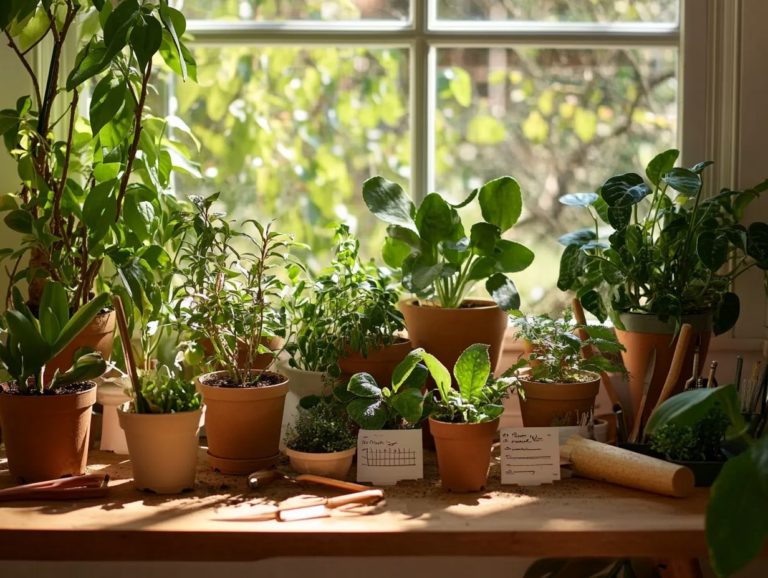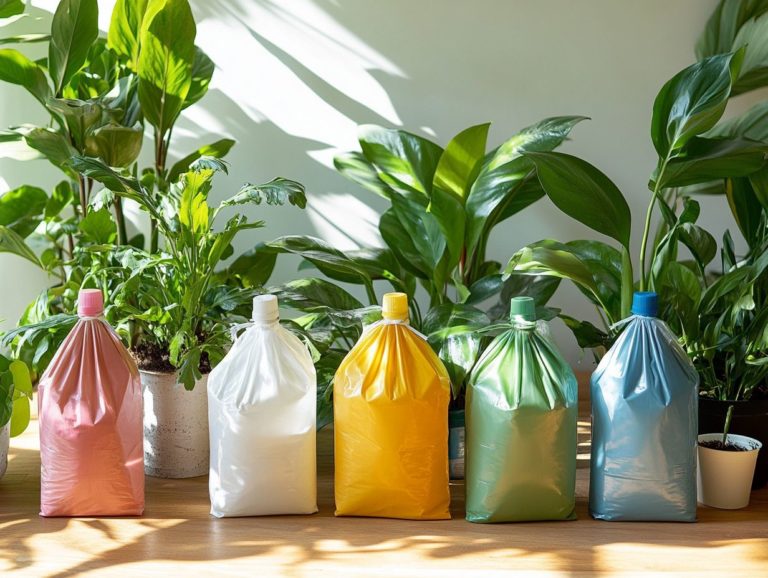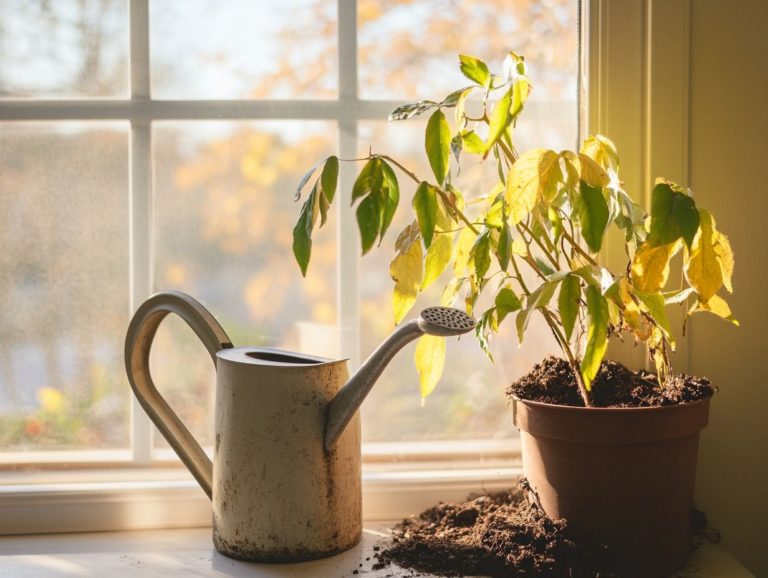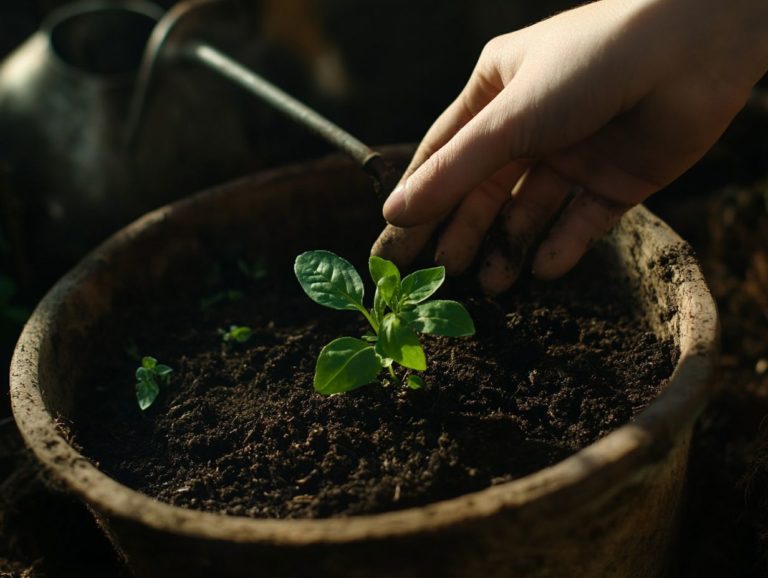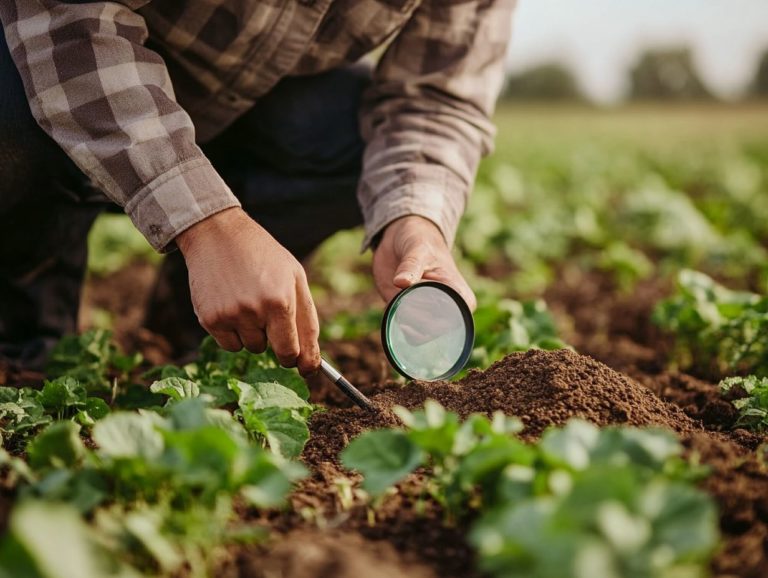Understanding the Benefits of Compost Tea
Compost tea is becoming a favorite among home gardeners and plant enthusiasts. It s celebrated for its ability to improve soil health and promote robust plant growth through beneficial microbes.
In this article, you’ll explore the essence of compost tea, discover its numerous advantages for your plants, and learn how to create your own nutrient-rich solution using various compost types.
We will clarify common misconceptions about compost tea safety and introduce alternative organic fertilizers to enhance soil health.
Whether you re an experienced gardener or a curious newcomer, you ll learn how compost tea can transform your gardening practices and help your plants thrive by improving nutrient absorption!
Contents
- Key Takeaways:
- How Compost Tea Benefits Plants
- Making and Using Compost Tea
- Common Misconceptions about Compost Tea
- Alternatives to Compost Tea
- Frequently Asked Questions
- What is compost tea and why is it beneficial?
- How does compost tea improve soil health?
- How does compost tea benefit your garden compared to traditional fertilizers?
- Can compost tea be used on all types of plants?
- How do I make my own compost tea at home?
- What are some additional benefits of compost tea?
Key Takeaways:
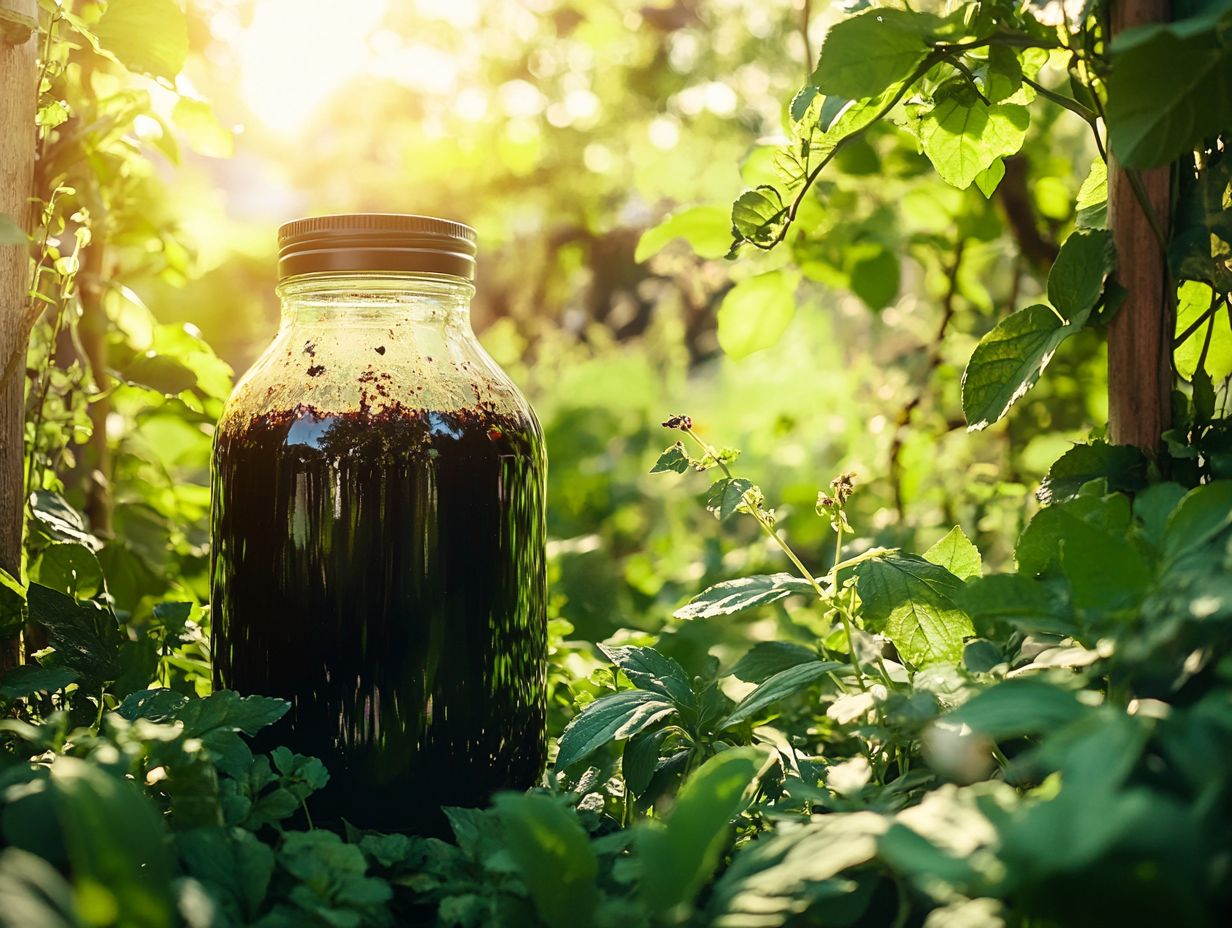
- Compost tea is a powerful liquid fertilizer made from compost and water. It offers an easy, cost-effective way to boost soil health and plant growth!
- By improving soil structure and increasing microbial activity, compost tea can lead to healthier and more productive plants, enhancing their disease resistance.
- Compost tea is not a cure-all. It may not suit all plants or situations, so consider alternative organic fertilizers for a well-rounded approach to plant care.
What is Compost Tea?
Compost Tea is a liquid fertilizer made by soaking compost in water. This process releases beneficial microorganisms and nutrients, enhancing your plants’ health.
This method improves the nutrient profile of compost, transforming it into an essential tool for home gardeners looking to boost plant health and improve soil quality through effective compost brewing techniques. It can also serve as a great foliar spray that supports vibrant plants and boosts microbial activity in your garden soil.
The composition of compost tea can vary based on the type of compost you use, as each type offers its own unique microbial populations and nutrients. Selecting high-quality compost is crucial.
For example, aerobic compost tea thrives on oxygen-loving bacteria found in well-aerated environments. This type can accelerate plant growth and enhance disease resistance while improving soil nutrient dynamics. In contrast, anaerobic compost tea relies on bacteria that grow in low-oxygen conditions, producing unique qualities that can assist in pest management and improve overall garden soil health.
Both types offer a wealth of beneficial microbes, including bacteria and fungi, which help enhance soil structure and nutrient availability. Environmental factors like temperature, the age of the compost, and the initial quality of the compost significantly influence the brewing process s effectiveness and the microbial activity in the compost tea. By monitoring these aspects, you can optimize your organic gardening practices and maximize the benefits of compost tea for your plants.
How Compost Tea Benefits Plants
Compost tea provides numerous benefits for your plants, significantly enhancing soil health and promoting robust growth through improved access to essential nutrients and beneficial microorganisms.
By nurturing microbial communities in your garden beds, this organic fertilizer boosts disease resistance and supports your plants’ overall vitality, leading to healthier growth.
Improving Soil Health
Improving soil health is one of the standout benefits of using Compost Tea. It acts as a powerful soil amendment, nurturing a vibrant ecosystem of tiny living things in the soil that are essential for nutrient movement and beneficial interactions within the soil. This creates a fertile environment for plant growth.
This robust microbial activity enhances soil structure and boosts its water retention capabilities. The result is healthier plants and a more sustainable garden that thrives through effective composting practices.
By introducing both aerobic and anaerobic bacteria into the soil, this liquid organic amendment fosters a balanced microbial community. This community plays a pivotal role in breaking down organic matter and releasing essential nutrients for healthy plant growth. Aerobic bacteria thrive in well-aerated soils, promoting decomposition and nutrient uptake.
In contrast, anaerobic bacteria flourish in compacted or low-oxygen areas, helping to break down materials that might resist decomposition. This enhances the overall compost quality.
Environmental factors like temperature, moisture, and organic material availability significantly shape the microbial processes during tea brewing. These factors influence the effectiveness of your compost tea. Using Compost Tea is not just an enhancement; it is an essential practice for cultivating long-term soil health and resilience, contributing to a vibrant garden ecosystem.
Boosting Plant Growth and Yield
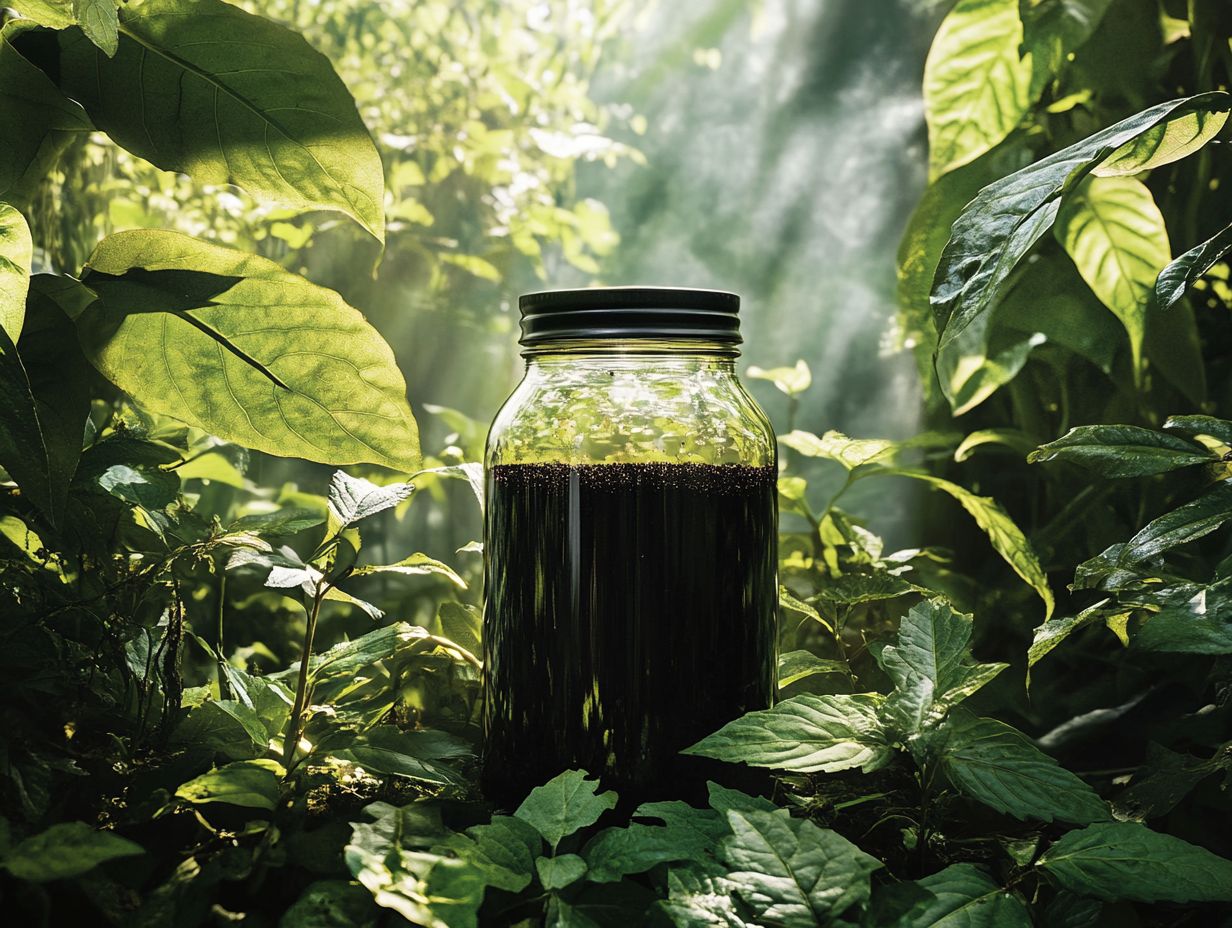
Boosting plant growth and yield is a standout benefit of using Compost Tea. It delivers the perfect mix of nutrients essential for robust plant health and development, ensuring plants have access to beneficial microbes.
When you apply this nutrient-rich solution correctly, it enhances nutrient absorption. This encourages your plants to thrive, making them more resilient against environmental stresses, pests, and diseases.
Beneficial microorganisms in Compost Tea play a crucial role in developing a strong and extensive root system. This is vital for water retention and nutrient uptake, allowing plants to access water more efficiently. A larger root size not only aids in water retention but also strengthens plant resilience against drought conditions, ensuring they thrive even in challenging environments.
You will see a remarkable increase in your overall yield, showcasing just how impactful this eco-friendly gardening technique can be on your plants’ vitality and productivity, ultimately enhancing your gardening techniques.
Making and Using Compost Tea
Creating and utilizing Compost Tea is straightforward. It offers a method to effectively extract nutrients from your compost, making it a key aspect of organic gardening. This results in a potent organic fertilizer that can be customized to meet the specific needs of your garden, particularly through careful compost recipe selection.
By following the appropriate compost recipe and employing effective brewing techniques, you can maximize both the nutrient content and microbial activity of the tea. This ensures it provides significant benefits for your plants and soil health.
Creating a Compost Tea Solution
Creating a compost tea solution starts with selecting the right types of compost and ensuring its quality is top-notch for optimal nutrient extraction and microbial activity during the brewing process. This is crucial for effective compost brewing. Choose your ingredients carefully like fish emulsion, seaweed extract, and healthy compost to customize your tea solution for the unique nutritional needs of your plants, addressing various environmental factors.
Next, gather your materials, including a brewing vessel or a bucket, and an air pump, which is essential for promoting the growth of beneficial microbes during brewing. This ensures high-quality compost tea. Begin by adding your chosen compost to the vessel, ideally using a ratio of one part compost to five parts water to maximize nutrient extraction and enhance microbial populations.
Aerate the mixture for 24 to 48 hours. This not only oxygenates the water but also encourages the rapid multiplication of beneficial bacteria and fungi crucial for producing a nutrient-rich solution that fosters healthy plant growth while maximizing compost tea safety. By keeping an eye on the temperature and pH (the measure of how acidic or basic a solution is), you can create an ideal environment for these microbes. This ensures that your compost tea is both effective and packed with the nutrients necessary for thriving plants, ultimately improving your garden soil.
Application Techniques
Application techniques for compost tea are pivotal in maximizing its benefits. Whether you choose to use it as a foliar spray or a soil drench, tailor the method to the specific needs of your garden beds and plants. This enhances nutrient absorption and microbial activity. Grasping the best practices for application can significantly boost plant health.
Selecting the right method can profoundly influence your garden s overall health and vitality, ensuring it thrives with the help of compost tea. Foliar sprays deliver beneficial microorganisms directly to the leaves, facilitating quick nutrient uptake and promoting leaf vitality while warding off plant diseases. Conversely, soil applications improve soil structure and fertility over time by nourishing the beneficial microorganisms in the soil. This fosters a robust root system that enhances water retention.
Timing is also critical. Apply compost tea during the early morning or late afternoon for optimal absorption. This minimizes evaporation, giving the microorganisms the best chance to thrive and benefit your plants, resulting in better overall gardening techniques.
Common Misconceptions about Compost Tea
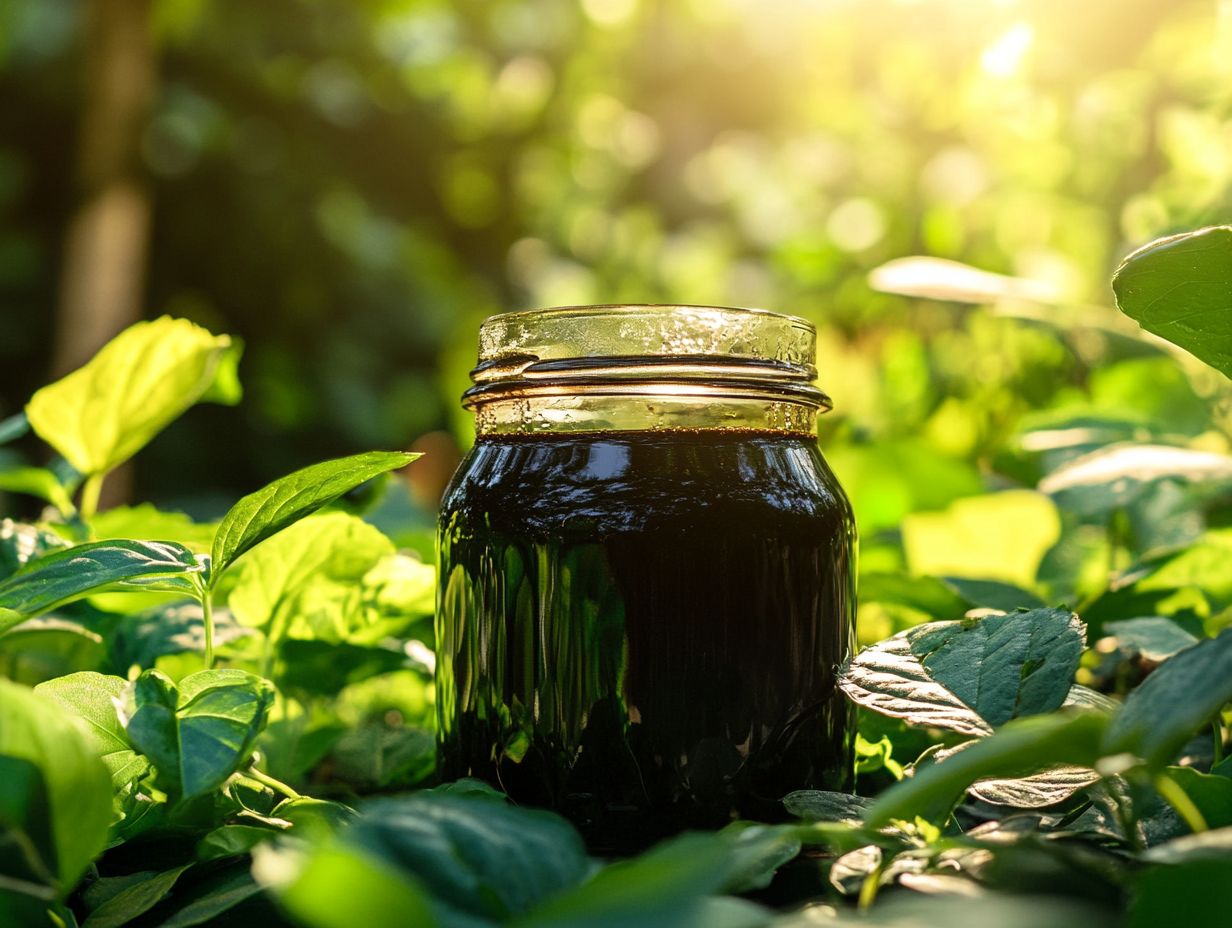
Common misconceptions about compost tea can create confusion, especially regarding its safety and the potential presence of harmful microbes or pathogens like E. coli and Salmonella during the brewing process.
As a passionate home gardener, uncover these misconceptions surrounding compost tea safety and best practices. By doing so, you can fully harness the benefits of compost tea without jeopardizing the health of your plants or the safety of your garden, allowing you to enjoy healthy soils.
Addressing Concerns and Debunking Myths
Addressing concerns and debunking myths surrounding compost tea is essential for your journey as a home gardener. This allows you to fully appreciate its benefits and safety, especially regarding harmful microbes. Much of the apprehension stems from misunderstandings about microbial populations and the potential risks of pathogens. However, these can be effectively managed through proper brewing techniques and compost brewing practices.
Recognize that not all microbes are detrimental; in fact, many play a crucial role in promoting plant health and enriching soil vitality, contributing to the overall health of your garden soil. Educators frequently underscore the significance of maintaining healthy microbial populations when producing effective compost tea, emphasizing that a diverse microbial community can suppress harmful pathogens rather than encourage them, thus improving compost tea safety.
Misconceptions about pathogens can cultivate unnecessary anxiety. When brewed correctly, compost tea can enhance soil fertility without compromising safety. By embracing best practices for compost tea preparation, you can ensure a safe and potent product that fosters robust plant growth and overall garden health.
Alternatives to Compost Tea
Looking for natural ways to boost your garden? Consider exploring alternatives to compost tea that can deliver comparable benefits for your plants and soil health.
Options like fish emulsion and seaweed extract serve as excellent organic fertilizers. They offer essential nutrients and help tiny organisms that support plant growth.
These products can be particularly effective for you as a home gardener. They provide alternative solutions to elevate your garden’s vitality and overall well-being.
Explore Great Organic Fertilizers
Consider exploring other organic fertilizer options, such as fish emulsion and seaweed extract. These can diversify your nutrient profiles and complement or even substitute compost tea in your gardening routine.
Each of these organic amendments plays a vital role in enhancing nutrient dynamics and supporting your plants health. Together, they contribute to a vibrant and productive garden.
Fish emulsion is packed with nitrogen and essential micronutrients. It s your go-to for promoting robust leaf development while encouraging beneficial microorganisms in the soil.
On the flip side, seaweed extract brings a treasure trove of trace minerals and growth regulators. These stimulate root development and enhance overall plant resilience.
When you use these fertilizers alongside or as alternatives to compost tea, you unlock combined benefits that improve nutrient uptake and maintain balanced soil health.
They also provide a sustainable way to garden, reducing your reliance on chemicals and cultivating an environment where your plants can thrive naturally.
Frequently Asked Questions
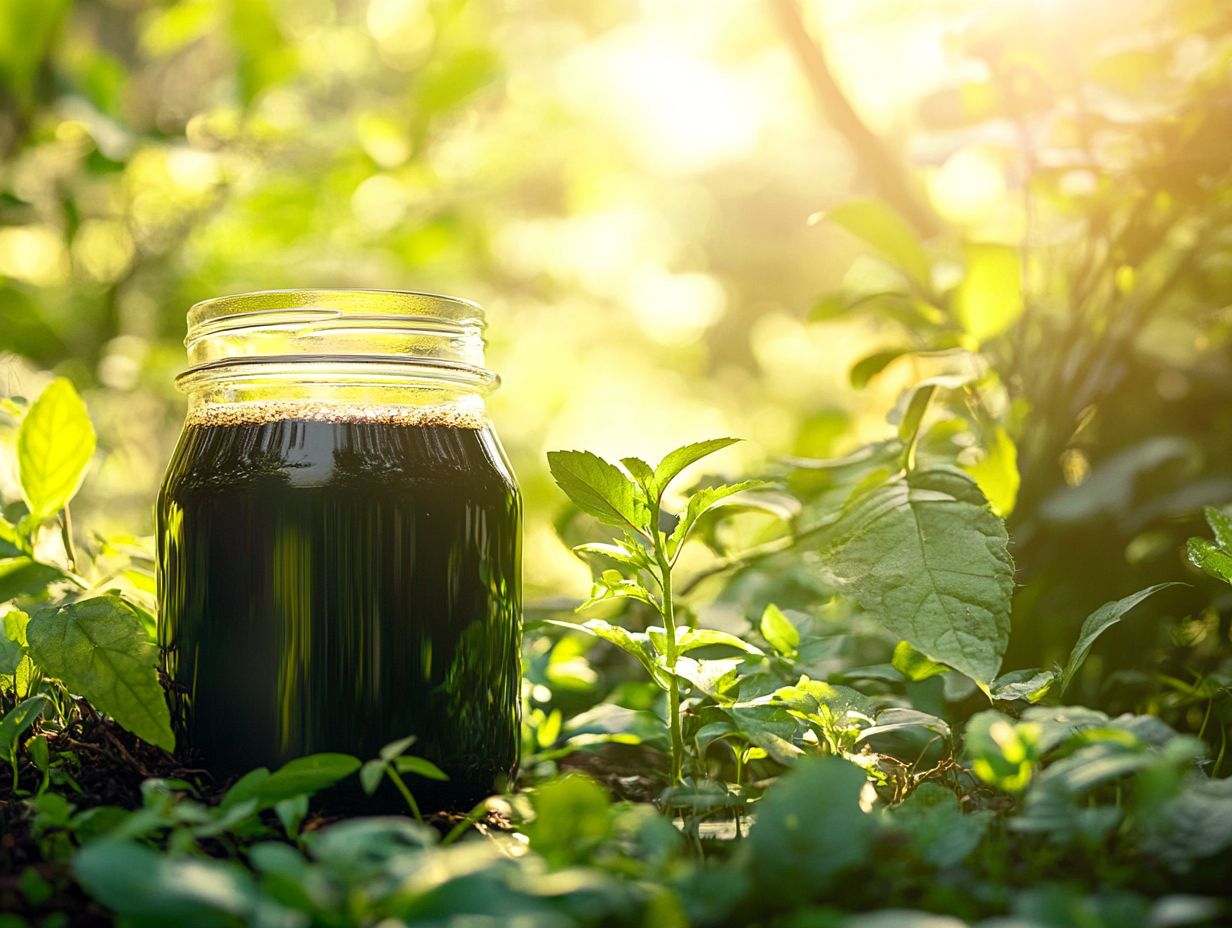
What is compost tea and why is it beneficial?
Compost tea is a liquid fertilizer made by steeping compost in water. It’s beneficial because it contains essential nutrients and microorganisms that improve soil health and plant growth.
How does compost tea improve soil health?
Compost tea adds beneficial microorganisms to the soil. These organisms help break down organic matter and make nutrients more available to plants.
It also improves soil structure and water retention.
How does compost tea benefit your garden compared to traditional fertilizers?
Compost tea is a natural and organic alternative to chemical fertilizers. This makes it safer for the environment and beneficial for long-term soil health.
It also provides a more balanced and diverse range of nutrients for plants.
Can compost tea be used on all types of plants?
Yes, compost tea can be used on all types of plants, including vegetables, fruits, flowers, and even lawns. It s a versatile and gentle fertilizer that promotes healthy growth in all plants.
How do I make my own compost tea at home?
To make compost tea at home, you will need two cups of compost, water, and a container. Simply add the compost to the container, fill it with water, and let it steep for 1-2 days before straining and using the liquid as fertilizer.
What are some additional benefits of compost tea?
In addition to improving soil health and plant growth, compost tea can help control pests and diseases in plants. It reduces the need for synthetic pesticides and fertilizers while increasing biodiversity in the soil.
Try these organic fertilizers today and see the difference in your garden!

